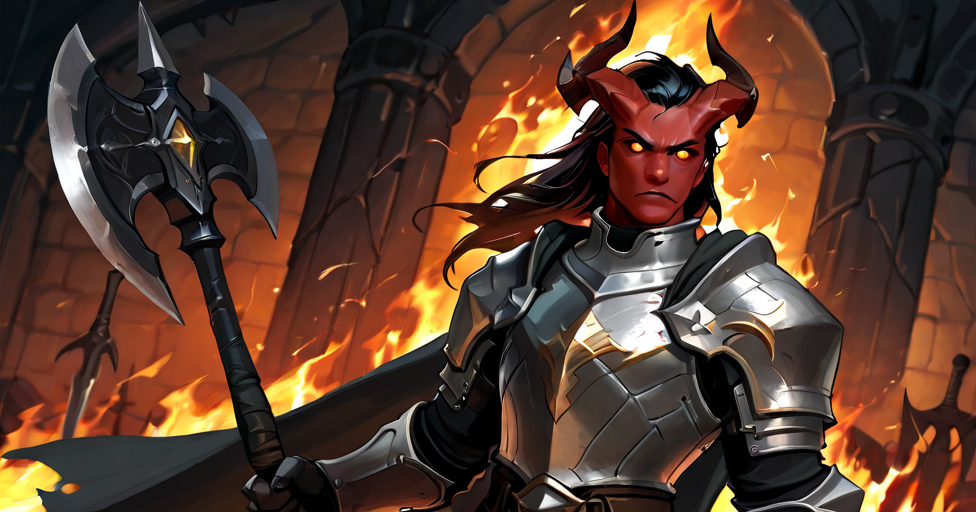When One Lad’s Tryin’ to Play a Different Campaign Entirely
“By Elgrin’s empty scrollcase, I’m runnin’ a tale about vengeance and shadows — and this fool thinks he’s in a slapstick pirate romp.”
There’s always that one. The player whose character don’t fit the world. Not just a little bit off, no — I’m talkin’ completely outta tune. You’re tellin’ a tale of cursed kings and ancient blood debts… and this lad builds a clown-themed bard named Jingles “the Unkillable” and insists on seducin’ every haunted door.
Now, don’t get me wrong. Player agency matters. They should shape their own tales, forge their own heroes. But there’s a line — and it’s drawn where one player’s freedom crushes everyone else’s story.
The real problem here ain’t comedy or tone clash — it’s disrespect. Disrespectin’ the campaign’s soul. Disrespectin’ the other players’ experience. Disrespectin’ the hours o’ prep ya poured into a scroll that ain’t meant to be a joke.
So if one lad keeps playin’ a different game — ya don’t shame ‘em. Ya don’t yell. Ya talk. And ya fix it early.
Respect Ain’t Just for Characters — It’s for the Game Itself
👉 Keep yer table pointed at the same horizon. If one player’s chartin’ their own map with no regard for the rest, grab some help from GM Wisdom. If yer scrolls are already in conflict, tell me the story at Mike’s contact page — I’ve patched up more campaign shipwrecks than I care to count.
How to Handle the Player Who’s In the Wrong Story
1. Talk Early — and Talk Soft
If you sense a mismatch at session one — or before — say somethin’. Not harsh. Not accusatory. Try:
“Hey, I love the creativity. Just want to make sure we’re playin’ the same kind of tale. This campaign leans serious — vengeance, sacrifice, tough choices. Can we find a version of your character that fits that world a little better?”
Respect their effort. But make clear the table’s tone ain’t theirs alone.
Didn’t have that talk early enough? Read When Session Zero Didn’t Save You. It’s what happens when this step gets skipped.
2. Frame It Around Group Respect
This ain’t just about you. It’s about everyone else at the table. Say:
“The whole group signed up for a certain kind of story. I want to respect what you want too — but we’ve gotta find something that honors what everyone signed up for.”
Remind them that freedom ends where it stomps on someone else’s fun.
A fine read on this mindset lives in Yer Not the Main Course — So Stop Hoggin’ the Spotlight.
3. Collaborate, Don’t Condemn
Don’t just say “change yer character.” Ask questions.
“What part of this campaign excites you most?”
“How can we fold your wild idea into this darker world?”
“Could we reflavor the goofiness into tragic irony? Or shift the vibe after this arc?”
Meet ‘em halfway. You’re not a rules warden. You’re a storysmith.
4. Use In-Game Consequences Only After the Talk
If the player keeps derailin’ scenes, breakin’ tone, ignorin’ stakes — after the conversation — then let the world respond.
The king don’t take them seriously.
The guards refuse their help.
The cursed blade mocks their antics and breaks in half.
But don’t surprise-attack ‘em with this. Let ‘em know first.
Tone enforcement ain’t a trap — it’s a warning system.
5. Invite a Reset If Needed
Sometimes the fit just ain’t there. That’s alright. Offer a soft reboot.
“We can write out this version of the character, and bring in a new one that fits what you’re really enjoyin’.”
It ain’t exile — it’s adaptation.
Respect both the player and the campaign. Yer runnin’ a tale, not a theme park.
Campaigns Are Shared Stories — Not Personal Spotlights
👉 If one player’s hijackin’ the scroll, don’t rage — redirect. Reunite the table under a tale worth tellin’. Find more strategy and sass in GM Wisdom or pour some soberin’ truth into their flagon with Yer Not the Main Course. When in doubt, put the story first.
Supporting Scrolls for Settlin’ the Storyline
FAQ
Q: What if the player genuinely doesn’t realize they’re off-tone?
A: Then it’s yer job to gently show ‘em. Be kind, but clear. It’s a mismatch — not a malice.
Q: Is it wrong to ask someone to change their character?
A: Not at all — if it’s for the health of the group. You’re askin’ for respect, not obedience.
Q: What if the player refuses to budge?
A: Then you have a bigger choice: reshape the campaign to accommodate them — or protect the rest of the table. Either way, be honest and own the decision.


